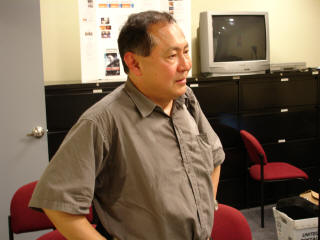This talk gives a general outlook on contemporary Chinese art and cinema that has attracted a critical attention from both Chinese and Western scholars in the past decade (1995-2005). As China is rising as a new economic power in Asia, the work of so-called Chinese “avant-garde” artists and filmmakers needs to be examined in the context of China’s rapid transformation from a Maoist socialist state to a country that embodies “a new kind of ruthless capitalism” in Slavoj Zizek’s observations. If a process of capitalistic globalization has benefited China’s economy and integrated its contemporary art and cinema into the “world system,” it also generates deep anxieties among “avant-garde” artists and film directors of a younger generation whose work is vigorously critical of that omnipresent global capitalism.
In many artworks created by this younger generation, we detect a notable tendency toward nationalism and a knowing expression of “post-socialist” trauma, which can be deemed as a response to the impact of globalization on Chinese society. Through an analysis of most representative works by Chinese artists working in different media, such as painting, installation, photography, video and film, I’ll try to clarify a coherent development in contemporary Chinese art and cinema since the mid-1990s to the new millennium.



